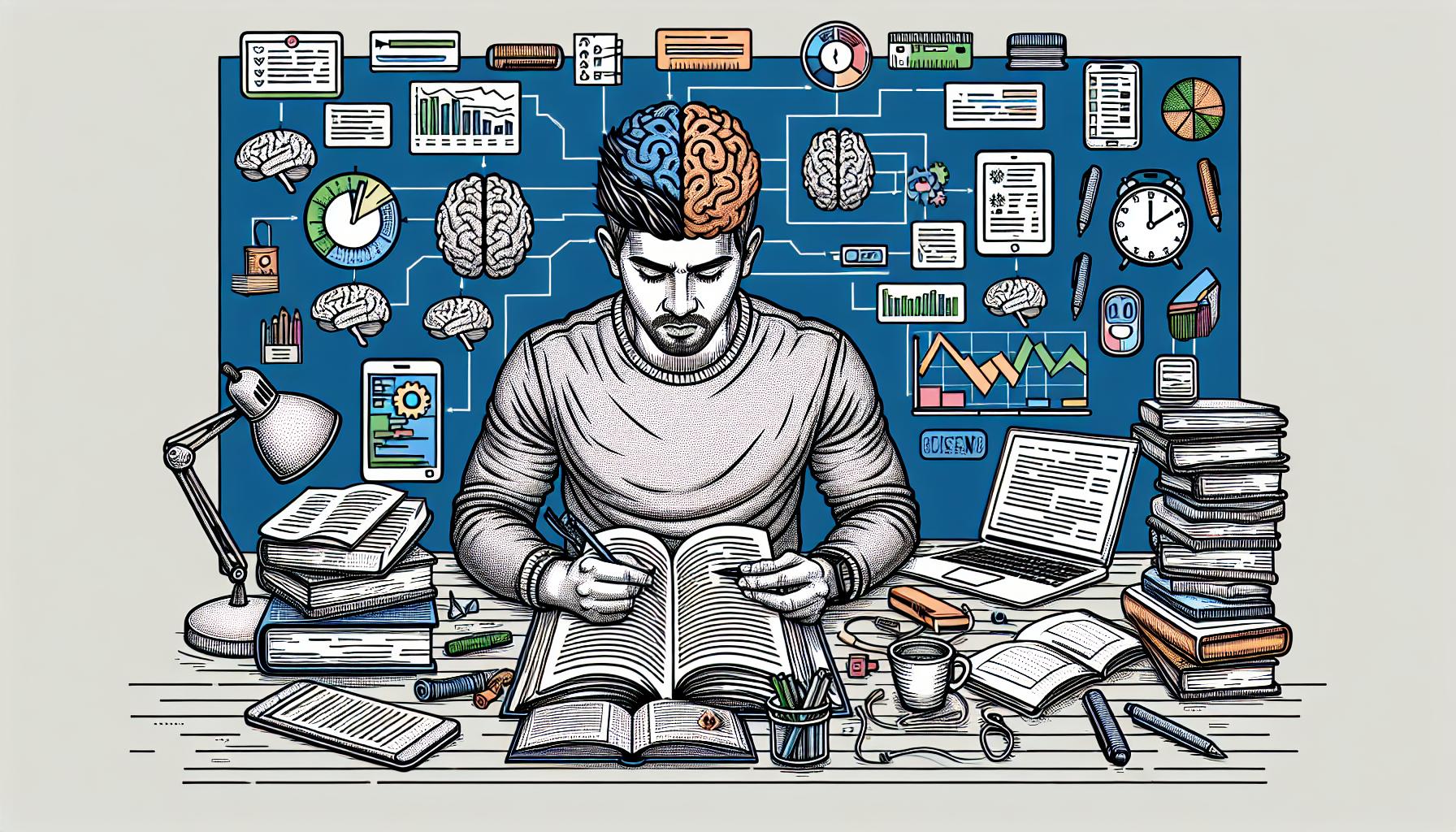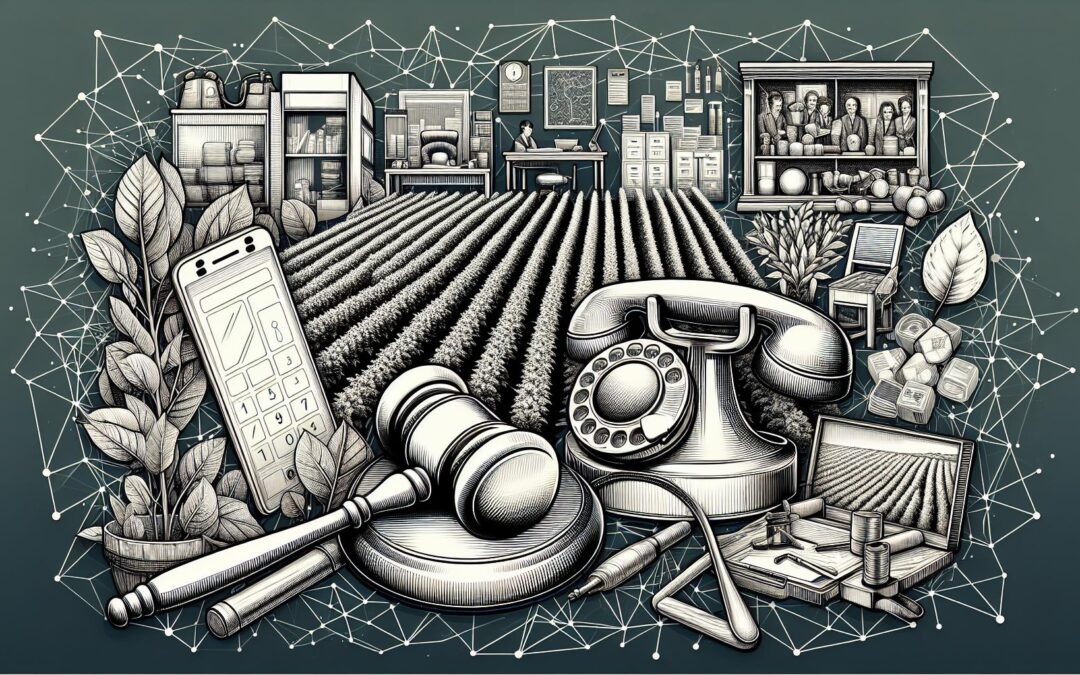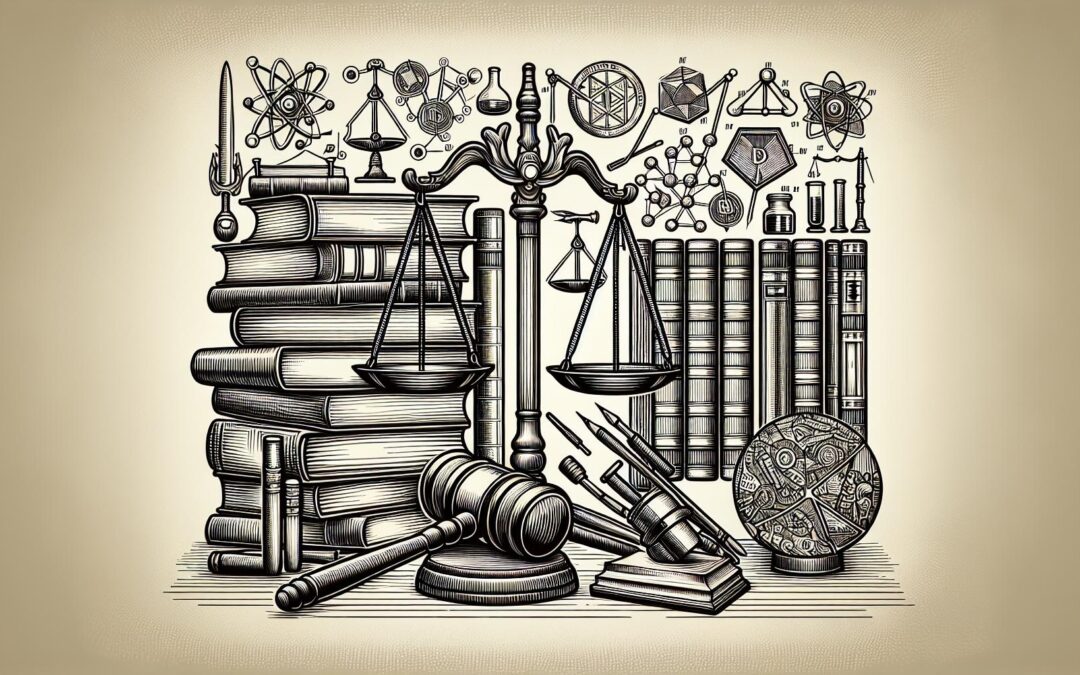Ever feel like you’re drowning in information overload? You’re not alone. In today’s rapid, data-driven world, efficient learning and sharp memory skills are more crucial than ever. This article will arm you with proven memorization tips, memory aids, and cognitive techniques that’ll turn you into a learning powerhouse.
Memorization Tips
It’s no secret that we live in the age of information. With every passing day, you’re exposed to an overwhelming amount of data through your laptops, smartphones, and the world around you. Amid such an overload, remembering crucial facts becomes a hassle. But don’t fret. With robust Memorization Tips and a better learning approach, you can navigate through this data-driven world confidently.
Let’s take a plunge into some valuable methods and techniques that’ll significantly improve your memory.
The first tip on your list to better memory is implementing a practice called ‘spaced repetition’. It’s a technique where instead of cramming information at once, you review it over longer intervals. It might seem counterintuitive initially, but you’ll quickly notice that the information you’re learning remains fresher in your mind for a longer duration.
Next, giving a shot at mnemonic devices could also go a long way in boosting your memory. This sophisticated term refers to simple memory aids like acronyms or visual images to connect data ensuring it’s easier to recall.
Introducing active recall in your learning strategy also serves to be incredibly beneficial. It essentially means quizzing yourself on the information you’re learning. Active recall strengthens neural connections, hence making it easier for you to retrieve the information when you need it.
Finally, enlisting the help of mind maps can work wonders for your memory. They use a hierarchical structure to organize information, with the most important facts in the center and related ones branching out. This nature and format of mind maps mimic how your brain processes information, helping you grasp and remember things effectively.
Remember, memorization is not a sprint – it’s a marathon. Each step you take is a stepping stone towards a sharper memory and an efficient learning process. Whether it’s using spaced repetition or starting to use mind maps, every method is destined to help you. So here’s the point – make these memory skills a part of your life, and get ready to see noticeable improvements in your learning and memory retention journey.
Memory Aids

In this era of information overload, your need for Memory Aids is like a traveler’s need for a compass. The right aids can guide you through complicated mazes of data, assisting you in not just remembering but also comprehending and applying the amassed knowledge.
Flashcards are an age-old yet powerful tool in this regard. Simple to create and portable, they’ve proven their worth in the learning process time and again. You simply write a question on one side of a card and the answer on the reverse. Shuffling these cards can disrupt the usual pattern your brain follows, helping you to depend less on sequence cues and more on truly knowing the subject matter.
Consider Digital Apps as well. They’re the modern counterpart of physical flashcards, with additional benefits. Apps like Anki or Quizlet offer customizability, mobility, and incorporate algorithms that aid in learning through active recall and spaced repetition.
And let’s not forget about Visual tools. Graphs, diagrams, sketches, flow charts; you can use them to simplify intricate information. Mind maps are one such visual tool that can demonstrate relationships between concepts, further encouraging meaningful learning.
Another method that might catch your fancy is the Peg Word System. It involves linking words to numbers or objects, serving as a bridge for your brain to access information. Imagine entrusting your keys to a peg on the wall. In a similar manner, the peg word system provides a sturdy peg for your brain to hang on to data.
Ensure the application of these tools isn’t a one-time wonder, but a continual process. Remember, memorization is a marathon, not a sprint. With the right memory aids, your path to efficient learning can be smoother than ever.
Every journey needs a roadmap, and memory aids are yours in the learning process. In the following sections, you’ll explore deeper into these techniques. You’re setting a robust foundation for your intellectual growth, adding more arrows to your cognitive quiver.
Learning Strategies

When it comes to Learning Strategies, it’s essential to remember, everyone’s unique. What works for one person might not work for another. But, certain approaches have been proven to be effective for a broad range of learners.
Active Learning
First up, consider active learning. It’s a strategy where you’re not simply a passive recipient of information. Instead, you actively engage with the material. This might involve answering questions, participating in discussions, or practicing skills. When you’re actively engaged, your brain works harder to process and retain the information.
Distributed Practice
Next, you’ve got distributed practice. This is a fancy term for space out your study sessions. Most of us have crammed the night before a test. Distributed practice, on the other hand, involves spreading out your study sessions over a longer period. It’s more effective because it allows your brain to consolidate the information.
Interleaving
Then there’s interleaving. This strategy means mixing up different skills in a single study session. For example, if you’re studying math, don’t spend an entire session on just one type of problem. Instead, mix up algebra, geometry, and statistics. The variation makes your brain work harder and can improve learning.
Self-Explanation
Self-explanation is another powerful strategy. It involves explaining concepts to yourself as if you were teaching them to someone else. This process strengthens your understanding and helps identify areas where you might be confused.
As your exploration of these strategies continues, it’s crucial to experiment and find out what works best for you. Engage with different methods and discover approaches that suit your own personal learning style and requirements.
NOTE: Remember, learning methods like these are evidence-based, but they’re not rules set in stone. Always give yourself the flexibility to modify strategies and tailor them to fit your specific needs. That’s the key to efficient learning.
Cognitive Techniques

As you continue to explore various strategies to master your memory game and study efficiently, Cognitive Techniques come into play. These techniques, firmly grounded in psychological and cognitive science, offer a science-based approach to learning.
A scientific recommendation is the self-testing technique or the practice of checking your own understanding. Even before you feel you’ve mastered a subject, start testing yourself. It’s one of the most effective strategies to improve your memory. You don’t need to wait until you think you’ve learned things by heart. It’s about applying what you know and learning from the experience. A table below presents the effectiveness of self-testing, comparing it to the average studying methods.
| Studying Methods | Accuracy |
|---|---|
| Self-Testing | 85% |
| Average Methods | 67% |
Another proven cognitive technique is the ‘Chunking’ method. This involves breaking things down into small, digestible, and manageable bits of information or chunks. The importance of chunking lies in its relevance to our everyday tasks; when you process information in chunks rather than as a whole, it’s easier to store and retrieve.
Remember, a critical aspect of these techniques is practicality. If you find a cognitive technique cumbersome, it may not be ideal for you. To benefit from strategies like self-testing and chunking, they must align with your learning style and personal habits.
As you’re in the throes of applying these cognitive techniques, remember flexibility is essential. Keep iterating your strategies, adapt to your needs, and you’re on your way to crafting a personalized, effective method for learning.
Studying Efficiently

The heart of this knowledge journey lies in Studying Efficiently. Cracking the code to effective studying isn’t about cramming the night before, it’s about smart strategies and habits that can boost your retention and understanding.
Let’s launch into the most effective techniques.
Set Smart Goals and Stick to Them
Establishing clear, achievable study goals will steer your efforts towards success. It’s crucial to set short-term and long-term goals, ensuring they’re smart – specific, measurable, attainable, realistic and time-bound. Clarity is key when it comes to studying; knowing exactly what you’re aiming for can bring a sense of purpose to your revision sessions and keep motivation high.
Embrace the Power of Technology
We’re living in a digital age and it’s wise to harness the advantages. Educational apps can help reinforce understanding, and digital tools help accessibility to study materials at any time. Just remember, use your tech wisely to aid your studies and avoid distractions.
Creativity is Your Friend
Being creative in your studying techniques can enhance memory recall. Try using mind maps, diagrams, or flashcards. Not only can these tools make learning more enjoyable, they can also help consolidate information in your memory for longer periods.
Ensure Adequate Rest
While it might seem counter-intuitive, rest is just as important as the time you spend studying. Ensure a good night’s sleep, as it aids in forming new connections in the brain and enhancing your memory. Sleep deprivation can undermine the efficiency of your study session.
Developing these effective strategies for studying efficiently takes time and practice, but the benefits are worth it. Once you find what works best for you, studying becomes less overwhelming and more productive.
Conclusion
So, you’ve learned a ton about memorization tips, memory aids, and learning strategies. You’ve explored cognitive techniques like self-testing and chunking. You’ve discovered the power of active learning, distributed practice, interleaving, and self-explanation. You’ve seen how setting smart goals, embracing technology, being creative in studying techniques, and ensuring enough rest can boost your studying efficiency. Remember, it’s all about finding what works best for you. These strategies are not one-size-fits-all, but tools you can customize to your unique learning style and habits. As you continue your learning journey, keep these strategies in mind. They’ll not only help you navigate information overload but also turn you into a more effective, efficient learner. And that’s a skill that will serve you well, not just in your academic pursuits, but in every aspect of your life.
Frequently Asked Questions
What are the learning strategies discussed in the article?
The article mentions several strategies, including active learning, distributed practice, interleaving, and self-explanation. It also introduces cognitive techniques like self-testing and chunking.
Does the article discuss individual learning styles?
Yes, the article emphasizes the importance of finding learning strategies that align with individual learning styles and personal habits.
Are there any techniques for studying efficiently?
In the article, the importance of setting smart goals, embracing technology, being creative in studying techniques, and ensuring adequate rest are discussed as strategies for studying efficiently.
What is the purpose of this article?
The purpose is to provide information about effective strategies for learning and studying wisely, particularly in the context of combating information overload.
Are there any benefits to applying these strategies?
The article concludes by highlighting the benefits of these strategies, including efficient studying, improved memory, better understanding, and ultimately, improved academic performance.











